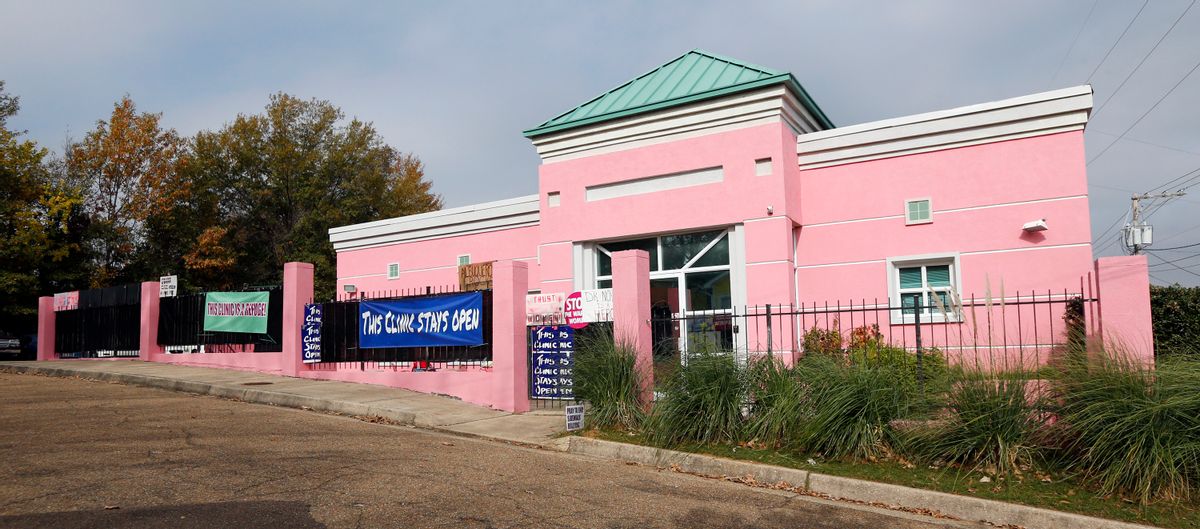The Supreme Court could gain the ability to effectively end legal abortion in the state of Mississippi as early as this week -- but whether or not the justices will take up that responsibility is a different story. A highly restrictive antiabortion measure that would shut down Mississippi's last remaining abortion clinic has made its way to the high court, forcing SCOTUS to determine whether it will answer any of the thorny questions raised by similar TRAP laws -- targeted regulations meant to shut down reproductive healthcare centers.
SCOTUS could decide on Monday whether or not to take up a case regarding Mississippi's admitting privileges law, which requires doctors to get cleared to admit patients to hospitals located near the state's only abortion clinic, in Jackson, in order to perform abortions. The law is predicated on the fact that admitting privileges are difficult to get; proponents of the measure have noted (unabashedly) that it is meant to eradicate the option of terminating a pregnancy legally across the state.
Think Progress explains how the measure works:
The law in question requires abortion doctors in Mississippi to obtain admitting privileges from local hospitals, a complicated bureaucratic arrangement that is difficult for physicians to comply with. The doctors who fly in from out of state to provide abortions at Mississippi’s only clinic have not been able to obtain privileges — which means that, if the law is allowed to take effect, the clinic will be forced to close. [...]
Admitting privileges grant doctors the right to admit patients to a particular hospital if they experience serious health complications after an abortion. Anti-abortion activists and lawmakers have construed doctors practicing without admitting privileges as proof that abortion services are grossly unsafe and unregulated.
Ironically, admitting privilege requirements set up doctors to fail because the truth about abortion is exactly the opposite: It’s already an incredibly safe medical procedure. Many hospitals won’t grant privileges unless doctors admit a certain number of patients to the hospital each year. Physicians who perform abortions typically cannot meet those thresholds, though, because major complications stemming from the procedure are extremely rare.
Whether or not SCOTUS agrees to take up the Mississippi case could have major implications for the future of TRAP laws in other states, which -- at the moment -- do not threaten to completely eliminate safe, legal access to abortion care, but rather to make it very, very limited. With Mississippi's single clinic, the question the justices would have to address is whether it is acceptable for a state to wipe out women's ability to exercise a constitutional right simply because they can exercise it in other nearby states. For states such as Texas, which has spent the past two years engaged in legal battles over its own admitting privileges law, the question is trickier: Does a law that shutters most of a state's abortion clinics violate the Constitution?
That might not be a question the Supreme Court is ready to answer yet, or one that it has to consider if it takes up the Mississippi case. But the justices might have to contemplate the issue eventually.



Shares